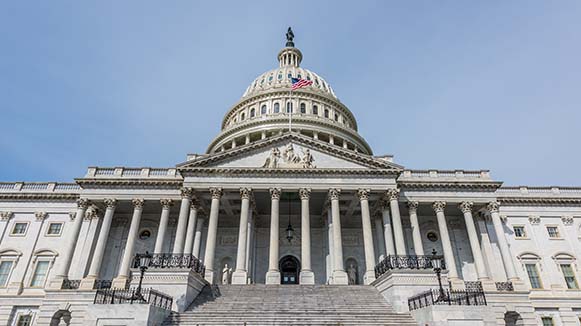Key Provisions of the Tax Cuts and Jobs Act

The Tax Cuts and Jobs Act has now been approved by Congress and is on its way to the White House to be signed by President Trump by this weekend. The Act, as currently approved, includes numerous provisions, generally effective January 1, 2018, that will impact both individuals and businesses. We will keep you updated and expand upon some of the provisions in more detail as further guidance is published over the next few weeks.
For individuals, the Act:
- Reduces the seven existing tax brackets of 10%, 15%, 25%, 28%, 33%, 35%, and 39.6% to 10%, 12%, 22%, 24%, 32%, 35% and 37%
- Retains the alternative minimum tax (AMT) for individuals with certain modifications to the exemption amount
- Nearly doubles the standard deduction
- Eliminates the deduction for personal exemptions
- Temporarily increases the child tax credit to $2,000 per qualifying child and provides a new credit of $500 for non-child dependents
- Limits the mortgage interest deduction for debt incurred after December 15, 2017 to original acquisition indebtedness of up to $750,000 (currently $1 million)
- Repeals the interest deduction on home equity indebtedness
- Limits the annual itemized deductions for nonbusiness income, sales and property taxes to $10,000
- Temporarily enhances the medical expense deduction by lowering the threshold to 7.5% of adjusted gross income (AGI) for tax years 2017 and 2018
- Increases the deductibility of cash gifts to public charities to 60% of taxpayer’s AGI
- Retains the student loan interest deduction and modifies Section 529 plans and ABLE accounts
- Repeals the deduction for alimony payments and their inclusion in income (applicable to agreements executed after December 31, 2018)
- Doubles the estate and gift tax exclusion amount for decedents dying and gifts made after December 31, 2017
To learn more, read the Journal of Accountancy‘s article on What the Tax Reform Bill Means for Individuals.
For businesses, the Act:
- Reduces the corporate tax rate from a maximum of 35% to a flat 21% rate beginning in 2018
- Repeals corporate level alternative minimum tax (AMT)
- Reduces the dividends received deductions
- Increases bonus depreciation expensing to 100% of the cost of property placed in service after September 27, 2017
- Enhances Section 179 expensing by increasing the dollar limitation to $1,000,000 and the overall investment limitation to $2,500,000
- Limits the deductibility of net interest expenses to 30% of the business’s adjusted taxable income
- Eliminates certain business tax preferences including the domestic production activities deduction and non-real property like-kind exchanges
- Allows a deduction to owners of pass-through entities (partnerships, S corporations and sole proprietorships) of 20% of qualified pass-through income
To learn more, read the Journal of Accountancy‘s article on How Tax Overhaul Would Change Business Taxes.
As always, should you have any questions, please contact us.
Let's Talk
If you’re interested in working with Tonneson + Co, please reach out to us. We look forward to hearing from you!
